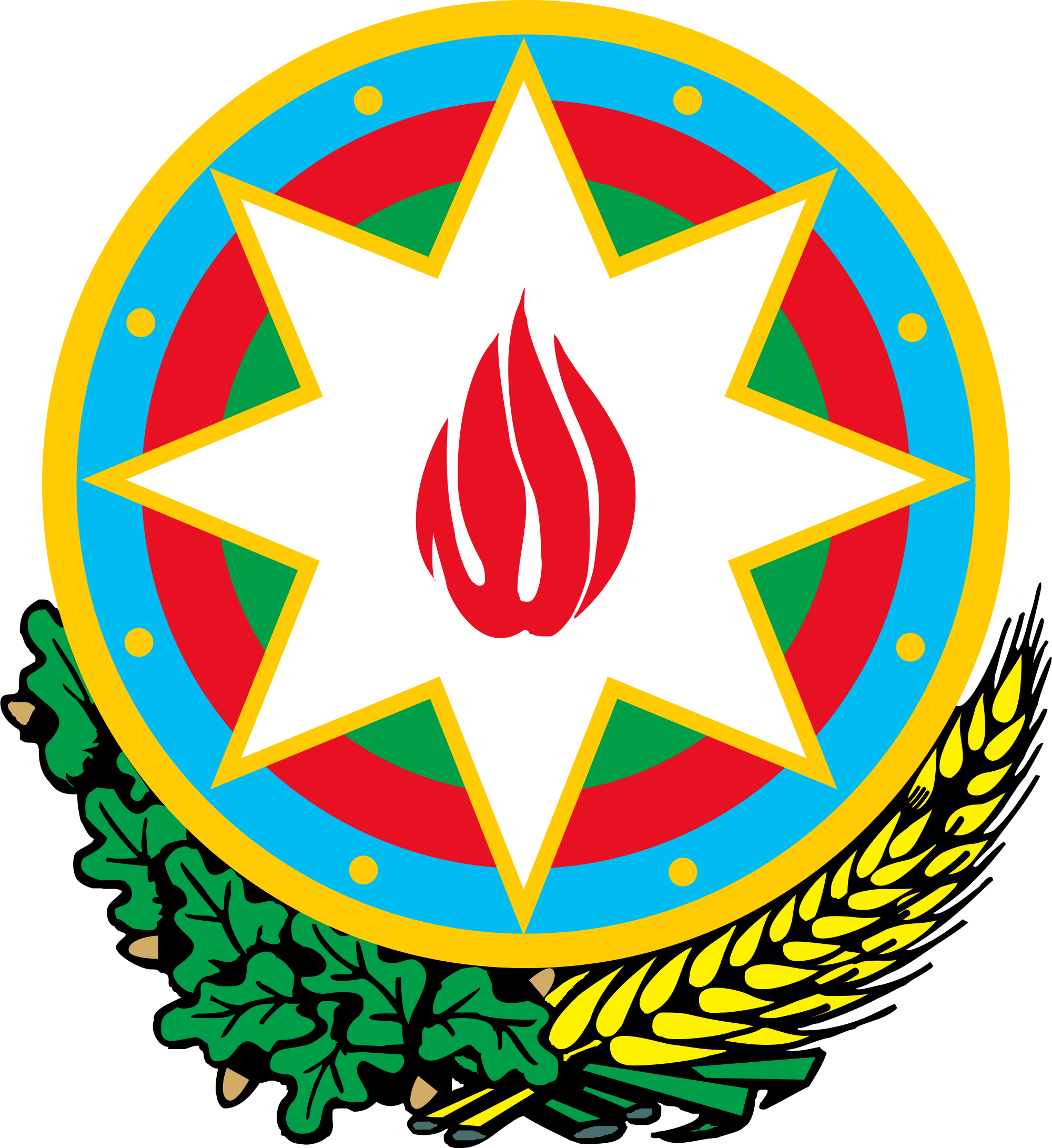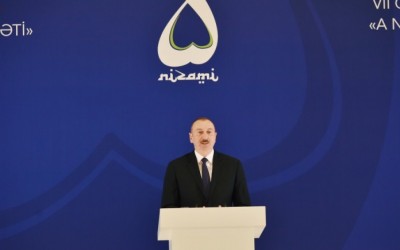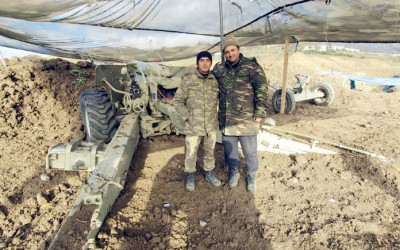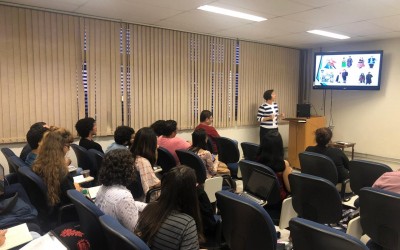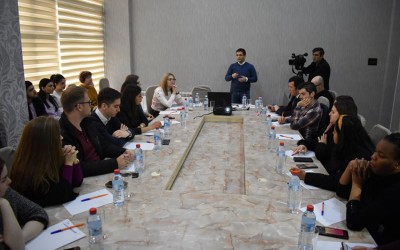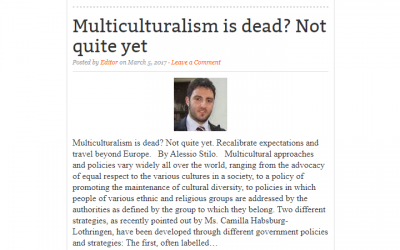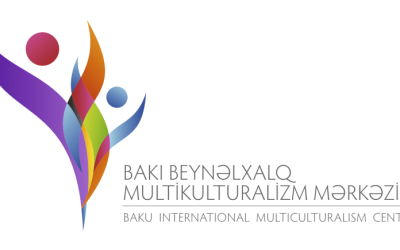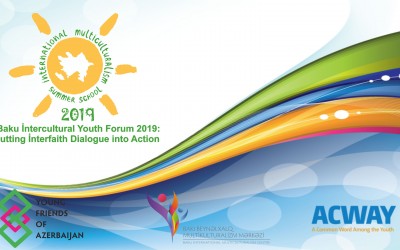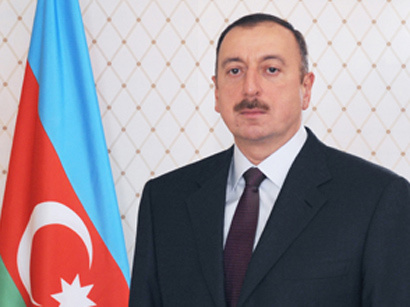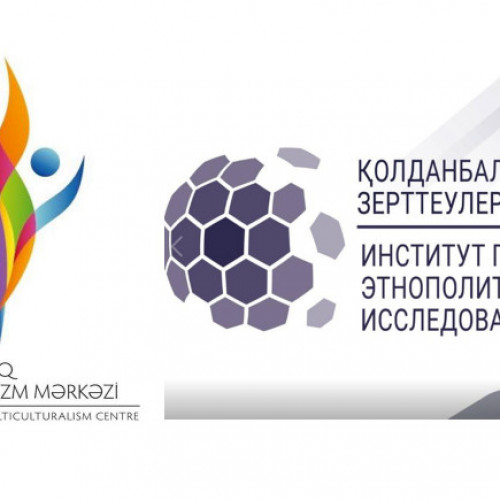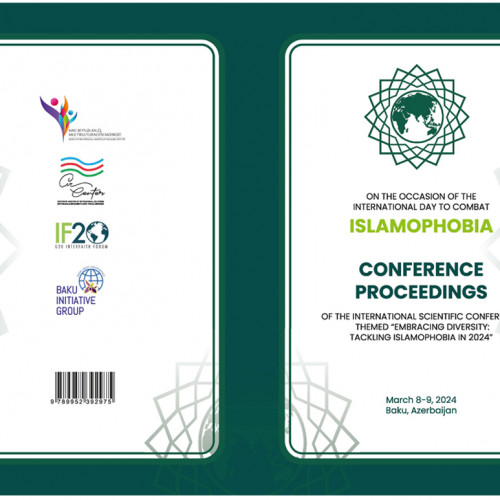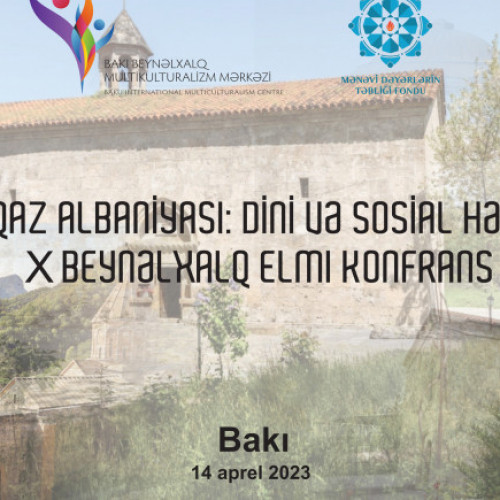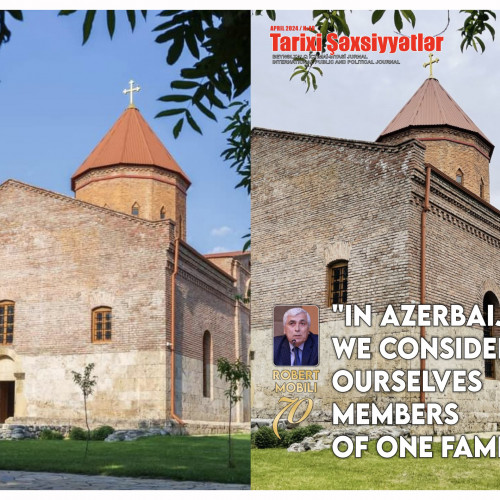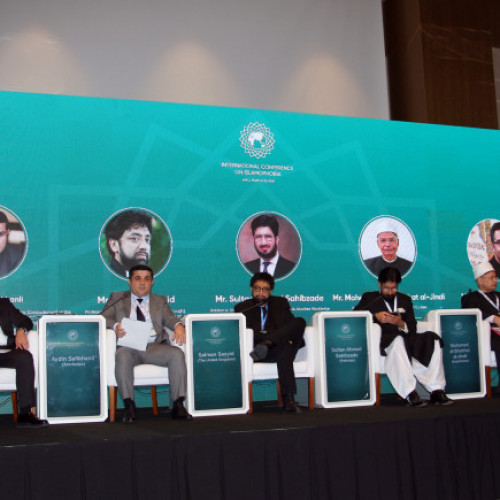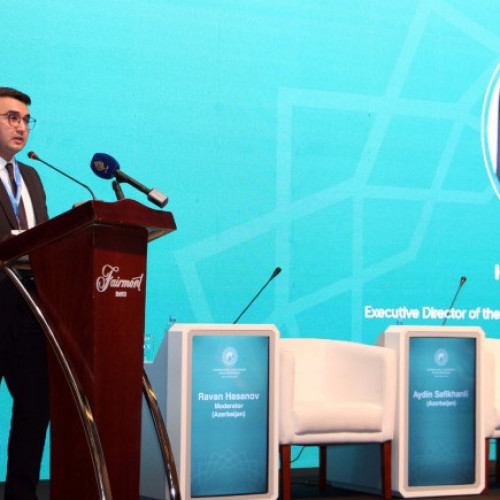The Role of the Policy of Multiculturalism in the Struggle Against Religious Extremism: in the Example of Azerbaijani Experience
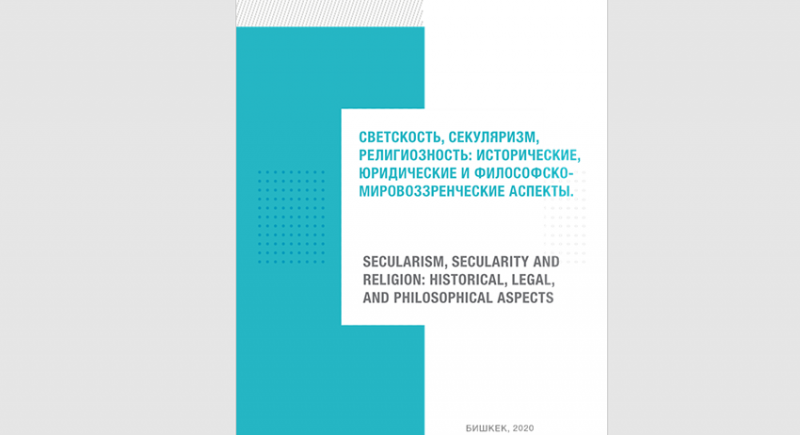
Abstract: This article will present the political-legal experience of the Azerbaijani state in comparison with other states in the guarantee of the freedom for faith and in the struggle against religious radicalism as well as religious extremism.
Keywords: Multiculturalism, religious extremism, religion, humanism, society, tolerance
Introduction
Religion is a social phenomenon which has emerged both as the system of beliefs and the form of management of society for many centuries. All holy religions are based on the principles of peacefulness, humanism and humaneness, and these creeds act as an ideological basis guiding the wide masses. Given that more than two thirds of the world population are the believers of different religions, the relations between religion and state as well as religion and soceity will always maintain their timeliness.
In the modern period the freedom for faith is part of the fundamental human rights. Although today religion is viewed from the prism of human rights and national-spiritual values, it also requires a security-wise approach. In many countries religion is separate from the state. However, the state must be responsible for the religious status and the citizens’ security in the country [ Ismayilov G., p. 191].
To maintain peace, tolerance and multiculturalism in the world today, there is great need in distinguishing the freedom for faith from religious radicalism, religious extremism and fanaticism. The process of deradicalization and the steps taken by the states and societies in this regard should also be analysed from a scientific perspective, and there should be some outcomes. Religious extremism and religious radicalism are a threat to the national and multicultural security of any state, and in the struggle against these phenomena the states have always combatted in the terms of different conceptions by improving their legislative basis. Besides, as religious extremism can lead to the notion of terrorism, special attention should also be attached to international cooperation in this regard.
In Azerbaijani society situated in a geography, where historically various cultures and religious creeds have merged, multicultural customs and traditions, as well as mutual understanding have predominated. Nevertheless, different periods have seen religious extremist and radical forces in a religious disguise to benefit for their own interests by taking over the power, violating social stability, causing religious confrontations, and there have been attempts to impinge the state sovereignty and stability. However, today Azerbaijan has managed to provide its multicultural security completely and raised the ideology of multiculturalism to the level of a state policy.
This article will present the political-legal experience of the Azerbaijani state in comparison with other states in the guarantee of the freedom for faith and in the struggle against religious radicalism as well as religious extremism.
The threats to our country’s national security associated with religion are multi-aspect. Some religious-political groups, which are being materially and morally supported by foreign states and functioning without permission, can be considered the most dangerous among them. The international practice shows that as such groups are inclined to national and religious extremism and terrorism, their activities cause more danger for the stability of society. They can be considered a threat to our national security [See: Religious security is part of the national security. The newspaper “Zaman”].
The Main Part
The history of terrorism and extremism, which are seriously threatening the humanity in the modern period, goes back to the ancient periods, and their formation is associated with different reasons. In many cases such kind of conflicts occur on ethnic, religious, racial and other bases. Irrespective of its motives and formation reasons, terrorism is one of the manifestation forms of extremism and the eradication of this danger is one of the most important and basic duties of humanity [See: Mammadov J. Azerbaijan in the Struggle Against Extremism.].
“Religious extremism” often implies aggression derived from religion. However, no matter how paradoxal it may be, actually, religion and agression are notions too far away from each other. It is clear that religious extremism has not any connections with sacred religious creeds and is a very dangerous social phenomenon for all societies. Every state combats religious extremism and radicalism in different forms.
If we review the historical experience of human civilization, we can see an interaction between religious extremism and terrorism. In general, the religious factor is of great importance in the formation of emotional-psychological, extremist behaviour as well as terroristic activities. It can be said that being carried out in a religious disguise, religious extremist activities are the criminal activities of different organizations, groups targeted at changing the constitutional structure by force, taking over the power, instigating religious intrigue and using other acts of violence to achieve political goals [See: Hajiyeva A. Religion and Terrorism].
To strengthen the struggle against religious extremism the Republic of Azerbaijan regularly improves its legislative, educational as well as law-enforcement measures, and always consolidates the ideological bases. Time has shown us that in case of an ideological gap and in the absence of the co-existence model, dangerous armed groupings in a religious disguise are most probable to emerge.
On 5 December 2015 the Republic of Azerbaijan adopted a special Law “On the Struggle Against Religious Extremism”. By defining the legal, organizational bases of the struggle against religious extremism this law fixes the rights and obligations of the state organs and citizens carrying out the struggle against religious extremism. The main purpose of adopting this law is to protect the constitutional structure, sovereignty and multicultural security of the state and strengthen the struggle against armed groupings and terroristic organizations formed in a religious disguise. Given that armed terroristic groupings formed in a religious disguise are threatening the entire humanity and are trying to involve the young generations in their ranks relying on extremely radical ideas, the adoption of the mentioned law was of great importance.
While the Law of the Republic of Azerbaijan “On the Freedom for Faith” has successfully been regulating the relations between religion and state so far, the new law has already differenciated between the freedom for faith and religious extremism, radicalism and fanatism from the legal point of view.
Certainly, the existence of monoethnic and intolerant societies is one of the cases causing the formation of religious extremism. From this point of view, the basic ideological foundation in the struggle against religious radical groupings is the advocacy and support of the idea of multiculturalism and the model of multicultural society. By turning the policy of multiculturalism into one of the political guidelines, Azerbaijan has formed an equal attitude to all religious communities, creeds and cultures at the state level.
However, contrary to it, in many Western societies the notions of religious fundamentalism, religious extremism and terrorism acquired the similar meaning and began to be associated with the name of some great religion (for instance, Islam). The mottoes like “Islamic terrorism”,” Islamic radicalism” happened to threaten the very peaceful heavenly religions in the mass psychology. This is very dangerous. In other words, those states are causing a great risk for themselves. The researches conducted by the sociologists of Maryland University in 2008 had very interesting outcomes showing that 51 per cent of the population of 20 countries completely rejected any association with any religious creed [The Caucasus and Globalization]. It shows that without any distinction people have come to associate even humanistic religious views with terrorism.
It should be noted that the line of development of these dangereous phenomena, which have actually no connections with religion and are beyond religion, is usually as follows:
Religious fundamentalism → religious radicalism and fanaticism → religious extremism → terrorism
For religious fundamentalism to emerge, ideology is not sufficient, for it to occur there must be a favourable socio-political and psychological environment. This notion means the existence of religious dogmas absolute, inherited from the past, unchangeable and inadaptable. Religious fundamentalism can be seen in three main symptoms.
- The believers should be managed by unchangeable and absolute religious rules established
by the past. - These religious rules can be interpreted only in one way for believers.
- The religious rules should be above the secular rules.
Religious fundamentalism first manifested itself in Christianity and Judaism in the 1900s. Whereas, in Islam it started to spread extensively at the time when Salafism emerged in Egypt in the XIX century.
In the 2008 report of the European Commission the notion of religious radicalism is viewed together with religious fundamentalism, and it is noted that radicalism is such a phenomenon that it can pave the way to religious extremism and terrorism by uniting people with identical views and ideas round the severe religious views [The European Parliament, Religious Fundamentalism and Radicalism, Briefing]. One can derive such a conclusion that religious extremism is not a phenomenon that emerges all of a sudden. This is a line of development where religious fundamental ideas can develop and lead to religious extremism. Many scholars call it “the process of radicalization”. Then there rises a question: when does this radicalization process completely turn into extremism? Can one draw the line of demarcation between these notions?
In fact, even in everyday practical life it is very difficult to differentiate between the freedom for faith and religious radicalism. Many scholars also demonstrate some controversial position on the complete transition of radicalization process into religious extremism. However, in general, there is such an accepted idea that an extremist is a person who tries to gain some results illegally and by force or disseminate his/her own idea.
Although in the early XX century terrorism, radicalism and extremism generated a serious threat in a number of countries including Azerbaijan, highly educated youth are capable of not only preventing radical terrorism but also denouncing it openly. The development of education plays an important role in the solution to social problems, in the development of the country. The conflicts in various countries of the world are due to the low level of education in those societies. Equal educational opportunities are created for every citizen in Azerbaijan, irrespective of his/her religion, ethnic identity. Owing to the care of the Azerbaijani state which attaches special attention to this area, over three thousand schools have been built for the last ten years. Owing to the education programs abroad over 3500 young people have got their education abroad. Multiculturalism is being taught at universities having been included in our country’s university curriculums [See: The Role of the Youth in the Struggle Against Terrorism, Extremism and Radicalism.].
The 4 December 2015 Law of the Republic of Azerbaijan “On the Struggle against Religious Extremism”, which defines the legal and organizational bases of the struggle against religious extremism in the Republic of Azerbaijan, fixing the rights and duties of the state organs and citizens carrying out the struggle against religious extremism, conceptualizes religious radicalism and fanaticism as follows:
Religious radicalism is the behavior which expresses the association with extreme religious views in the frames of any faith, demonstrates irreconcilable attitude in fixing the exceptional nature of those religious views and is characterized by the use of aggressive methods and means in its dissemination;
Religious fanaticism is an extreme degree of religious belief excluding any critical approach and accompanied by blind observance of religious norms as one of the ideological bases of religious extremism [See: The Law of the Republic of Azerbaijan “On the Struggle Against Religious Extremism”];
Besides, that law reflects the main goals of the Republic of Azerbaijan in the struggle against religious extremism – the guarantee of the bases of the Constitutional structure of the Republic of Azerbaijan, as well as its territorial integrity and security, the protection of the human and civil rights and freedoms, the detection, prevention of religious extremist activities, the minimization of the expected harm resulting from religious extremism, the detection and elimination of the reasons for and conditions of the formation of religious extremism and the implementation of extremist activities as well as the detection and elimination of the cases of financing religious extremism, the main principles of the struggle against religious extremism, the subjects, forms and methods of carrying out special operations against religious extremism, the situation and responsibility arising from the religious extremist activities, also in cases of violation of the appropriate provisions of the legislation of the Republic of Azerbaijan.
Cases of religious extremism were more often observed in Azerbaijan in the early 1990s. In the first years of independence the lack of socio-political stability and the weak capacity of the state to control over this area, also the low level of religious education of the people as a result of the 70 year advocacy of Soviet atheism led to the formation of various groupings in a religious disguise. Certainly, under these conditions it was easier to attract people by making use of ideological gap and force them to act in accordance with their purposes.
It should be noted that later on as years passed, and development continued, the state attached special attention to this area and formed a related strategy. That is, in 1992 the Law of the Republic of Azerbaijan “On the Freedom for Faith” was adopted; and thus, the legal prism of relations between the state and religious organizations was defined. And the 1995 Constitution of the Republic of Azerbaijan determined the main principles of relations between religion and the state at the highest level.
As Article 1 of the Law “On the Freedom for Faith” clearly points out, everyone has the right to profess any religion alone or together with others and express his/her conviction related to his/her attitude to religion and disseminate it. No obstacle can be made in the individual’s expression (demonstration) of his/her faith, participation in prayers, religious rituals and ceremonies or his/her learning religion. No one can be forced to express (demonstrate) his/ her faith, perform religious ceremonies or participate in religious ceremonies. The advocacy of religious faith and religious lifestyle cannot be allowed by using force or threatening with the use of force, as well as with an aim of causing racial, national, social intrigue and hostility. The dissemination and advocacy of religions (religious movements) diminishing human dignity or going against the principles of humanism are forbidden [See: The Law of the Republic of Azerbaijan on the Freedom for Faith].
Getting officially registered, religious communities function as legal entities in the Republic of Azerbaijan, and all religious communities are equal before the law and state. In accordance with Article 18 of the Constitution of the Republic of Azerbaijan, religion is separate from the state, and all religious faiths are equal before the law [The Constitution of the Republic of Azerbaijan]. In fact, this principle clearly defines the direction of the relations between the state and religion. Like in all other secular states, the intervention of religion into the state or the reverse is impossible, and all religious creeds are freely represented in society.
However, as it is also understandable from Article 1 of the above-mentioned Law “On the Freedom for Faith”, in order to prevent the dissemination of the creeds or movements diminishing human dignity and going against the principles of humanism, the state must hold the function of general control in its hands and be responsible for the safety of society and the supreme nature of the law.
In Azerbaijan religious radicalism is one of the most dangerous branches of radicalism. The anticipation and prevention of its complications are of great importance from the points of view of a stable society, coexistence of different religious beliefs, and maintenance of tolerance. The Republic of Azerbaijan has always been one of the centres of tolerance where peaceful co- existence, various cultures and religious beliefs were assembled on a single stratum. Despite the big number of the forces willing to cause an artificial problem for the last years, our state has always been able to provide the necessary peace, stability on its territory. The hardest form of radicalism of the recent years was the accident in the village of Nardaran, Baku. That is, another state’s banner was hoisted in the middle of the village, and it was pointed out as a motto that power must be regulated by religious rules, not the secular ones. This certifies to the association of that religious radicalism with the religious-ideological profile of another state, and our assumption that the villagers had been influenced by that profile. Despite all this, the state has maintained its stable status and the peace of the population, and taken the security measures successfully.
It should be noted that religious radicalism is not formed naturally. The outside and external forces try to form it artificially in their own interests and under their own impact. The main goal here is the technological use of the religiously disguised political interests of foreign forces who are interested neither in religious activity nor in faith [See: The Threat of Religious Extremism and Its Complications.].
In scientific literature the reverse process of radicalization is called “deradicalization”. That is, the preventive measures of the states against religious radicalism and extremism accomplish the composition of the notion “deradicalization”. These preventive measures can be distinguished in three aspects:
- The legal strugggle against religious radicalism and extremism
- Educative measures and formation of ideological alternative policy
- International cooperation in the struggle against religious extremism and the armed groupings formed by a religious disguise.
Combatting the movements advocating radicalism and religious extremism, which are the real and potential sources of threat to the Azerbaijani people’s national interests, taking necessary measures to prevent the moderate believers, youth and teenagers from getting under the impact of harmful religious ideologies are among the basic activities of the Republic of Azerbaijan in religious education.
As examples to these measures, one can cite the complex activities organized by the state in all regions of the Republic targeted at religious education in order to combat the credulity, religious radicalism and extremism, advocate the national-spiritual values, promote our tolerant and multicultural traditions, also re-animate the traditional Islamic values as an alternative to radicalism and fanatism.
Every state wages a struggle against religious radicalism and extremism in the frames of its legislation. Article 167 of the Criminal Code of the Republic of Azerbaijan criminalizes such actions as preventing from the exercise of religious rituals, forcing to religious faith or financing such actions on the grounds of religious hostility, religious radicalism or religious fanatism, illegal production, import, purchase or dissemination of religious literature, audio and video materials, goods and products and other information materials with religious content, and the crime with these actions constitutes the basis of legal struggle. In Article 168 of the Criminal Code the usurping of the citizens’ rights by the disguise of the exercise of religious rituals, i.e. the organization of a group functioning by the disguise of disseminating religious beliefs and the exercise of religious rituals and rioting through this activity or harming the citizens’ health or violating the citizens’ rights, irrespective of its form, as well as distracting the citizens from fulfilling their duties as identified by the law, leading that group or participation in such a group and violating the requirements of religious advocacy, religious rituals and ceremonies are also considered acts forbidden by the legislation and generating criminal legal responsibility. Moreover, Article 283 of the Criminal Code of the Republic of Azerbaijan criminalizes the initiation of national, racial, social or religious hatred and fraud considering them criminal acts. That is, the actions targeted to initiate national, racial, social or religious hatred and fraud, diminish the national dignity as well as restrict the citizens’ rights or identify their priorities depending on their national, racial or religous identities cause criminal responsibility when committed [See: The Criminal Code of the Republic of Azerbaijan, Baku] openly, also by using the means of mass media.
However, no matter how legally important the struggle against religious extremism or radicalism is, it is not sufficient yet. One of the most important symptoms of the process of deradicalization is the high level religious education.
As it is noted at the beginning of the article, the Republic of Azerbaijan is one of the rare states that realize the idea of multiculturalism on the stratum of a state policy. This very policy is a humanistic and liberal political line advocating and supporting multiculturalism and multiconfessionalism in society. In Azerbaijan, which is rich in ethnic, national and religious diversity, the policy of multiculturalism is the greatest obstacle before the emergence of religious radical views along with living up to expectations. Since, any creed and culture not forbidden by law can comfortably exist in multicultural society, and is even supported by the state. In such societies it becomes difficult to conduct a radical advocacy in a religious disguise, and ideologically the state happens to acquire self-defence mechanism as well.
Unfortunately, it should be noted that in a number of Western states, especially in the states facing the migration problems the policy of multiculturalism is rejected, and they try to present this notion in a different sense. For instance, it is mentioned that multiculturalism can lead to compactization. That is, the attempt of every national minority to protect its culture and religion can cause a conflict within a state, and different compact groups can be formed. During his speech at the 47th Munich Security Conference organized on 5 February 2011 the then Prime Minister of Great Britain David Cameron used expressions implying the following: “the doctrine of multiculturalism prevents the process of integration in society. Consequently, different communities, especially the Muslim community conduct advocacy contradicting the values of our democratic societies rejecting the liberal values in society which enables the rise of religious extremism. “Under the doctrine of state multiculturalism, we have encouraged different cultures to live separate lives, apart from each other and apart from the mainstream. We’ve failed to provide a vision of society to which they feel they want to belong. We’ve even tolerated these segregated communities behaving in ways that run completely counter to our values. However, certainly, such kind of approach is not a true one, and the essence lying in the roots of this approach by some European countries is of economic nature. That is, the political solution to the clashes of cultures generated as a result of economic migration must be an obligatory integration. This scene can also be described by Max Frisch’s famous expression: “We wanted workers, we got people.” It is not difficult to imagine that this kind of approach is an approach contradicting universal values.
Every nation has the right to maintain its creed, customs and traditions and culture, and all states must enable it. The reverse of it can lead to such crimes as assimiliation or isolation or apartheid, ethnic-national conflicts and faith discrimination which can certainly generate dangerous hotbeds of conflicts, terroristic groupings in a religious disguise or disguised as the movement of resistance. From another angle, the reverse of the policy of multiculturalism can lead to the disappearance of minor cultures which will further inflame the process of polarization and the emergence of the notion of dominant culture, the hatred among the nations. As is mentioned by the outstanding American scholar Samuel Handington, there can be the clash of civilizations.
Whereas, the Republic of Azerbaijan treats both the mainenance of religious diversity and the policy of multiculturalism very sensitively and has formed a special political line in this area. In this connection there is even Baku International Centre of Multiculturalism, the State Committee for the Work with Religious Organizations, Department of the Presidential Administration of the Republic of Azerbaijan on Interethnic Relations, Multiculturalism and Religious Issues. Even in his opening speech at the VI Baku International Humanitarian Forum the President of the Republic of Azerbaijan Ilham Aliyev emphasized it, “There is no alternative to multiculturalism. The reverse of this policy is Islamophobia, xenophobia, anti-Semitism and discrimination.” That is, the policy and ideology of multiculturalism is actually a humanistic and liberal political course targeted at promoting interreligious, interfaith and intercultural dialogue rather than igniting religious extremism.
On the other hand, it should be mentioned that the Republic of Azerbaijan is taking many educational measures to pursue the policy of multiculturalism and combat religious extremism. That is, for instance, it is closely cooperating with the State Committee for the Work with Religious Organizations, Baku International Centre of Multiculturalism, other central and local executive bodies, the civil society institution s, and organizes a series of conferences, sessions, “round tables” jointly with them almost in all regions of the country. These events, mainly are aimed not to allow the cases of intolerance, discrimination among the believers of different religions and sects, but strengthen tolerance and multicultiralism in the activities of religious communities, prevent the radical tendencies in society and involve religious communities in these activities. The educational activities are carried out through electronic means of mass media, newspapers and publications prepared by the State Committee. For this purpose, different literature are published.
The Republic of Azerbaijan is continuing its activities to prevent religious extremism, protect citizens from foreign influences, maintain a stable religious situation in the country, guarantee the security of the population today as well. To adjust the normative-legal acts to the international norms, identify the rights and obligations of both the state and religious organizations precisely, as well as restrict the activities of the sects and movements advocating harmful ideas contradicting the principles of humanism, the legislative basis is regularly improved. The main goal here is to serve the correct development of each of the Azerbaijani youth, the advocacy of the maintenance of national values, customs and traditions in both their families and educational institutions, turning them into a bright future for the state and society. Yet, despite all the educational measures taken in the country, the untraditional radicals especially those disseminating radicalism, extremism and credulity, trying to politicize religion continue their activities. Therefore, it is necessary to take educational measures at the state level, facilitate the youth, who are the future of the country, in understanding and correctly appraising multiculturalism and the related state policy, the realities, the processes going on in the world, and guide them in certain directions.
As it is metioned above, international cooperation is one of the the important elements of the process of deradicalization. It is clear that if the world community jointly combats religious radicalism, extremism and terroristic groupings, which are derived from them and formed in a religious disguise, more successful outcomes can be obtained. However, joint cooperations are more important also for these phenomena not to emerge. That is, ideological struggle and exchange of experience are more important than armed struggle. Unfortunately, it must be noted that the international struggle against extremism leaves much to desire yet. Most often the international organizations treat in the content of international terrorism the struggle against extremism. “The International Convention on Combating Terrorism, Separatism and Extremism” adopted by Shanghai Cooperation Organization on 15 June 2001 is almost the first international document adopted in the frames of the struggle against extremism.
After gaining independence in the late XX century, the Republic of Azerbaijan ratified many international documents in the frames of close cooperation with international organizations and reflected them in its internal legislation to maintain and develop ethno-cultural and confessional diversity. For instance, such documents as “The International Convention on the Elimination of All Forms of Racial Discrimination”, “The International Declaration on the Rights of the Persons Belonging to National or Ethnic, Religious and Language Minorities” in the frames of cooperation with the UNO, “The Framework Convention for the Protection of the National
Minorities” in the frames of cooperation with the Council of Europe, “Helsinki Final Act” in the frames of cooperation with the OSCE, “The Convention on the Protection and Promotion of Cultural Self-defence” and “The Declaration of Principles on Tolerance” in the frames of cooperation with the UNESCO have been ratified, and the main provisions of these documents have found their reflection in the Constitution of the Republic of Azerbaijan, which is considered the main law of the country, as well as in appropriate legislative acts.
Such norms of the Constitution of the Republic of Azerbaijan as Article 18 (Religion and State), Article 21 (State Language), Article 25 (Right for Equality), Article 44 (National and Ethnic Identity), Article 45 (Right to Use the Mother Tongue), Article 48 (Freedom of Conscience) are the greatest guarantee to maintain the ambiance of the ethno-cultural and confessional tolerance and provide multicultural security.
Azerbaijan is a tolerant country where various ethnicities and nationalities, people professing distinct religions have historically co-existed in friendship and fraternity. The values of humanism and multiculturalism peculiar to the Azerbaijani people are of exceptional importance in the peaceful co-existence of the ethnicities with distinct faith and beliefs for thousands of years, maintenance of the ethnic cultural diversity up to present.
Today interreligious relations are at the highest level in our country. The specialists visiting Azerbaijan are presenting religious tolerance as the universal model.
The entire world has already admitted that the policy of Azerbaijan is based on such principles as tolerance, strengthening of the ambiance of dialogue, realization of the rights of youth and women, consolidation of the present-day values.
Our State leader’s special attention to and care for the religious sphere, the repairs and restoration of mosques, churches and synagogues should also be emphasized. Azerbaijan is among the few countries which offically allocate financial resources to the religious sphere, repair and restore the religious places of worship at the state expenses.
Jointly with various state organizations, Baku International Centre of Multiculturalism regularly holds national and international scientific-theoretical, scientific-practical conferences, seminars, “round tables”, lectures, literary-artistic events on the themes of cultural diversity, tolerance and the role of intercultural dialogue in the solution to the conflicts, the Azerbaijani model of multiculturalism and the world multiculturalism models. As examples, one can cite the section on “The Role of Azerbaijan in the Formation of Multicultural Soceity” in the frames of the VII Global Forum of the UN Alliance of Civilizations on 27 April 2016, the First International Roundtable on “Terrorism Against Multiculturalism” on 28 June 2017, the International Conference on “The Past and Present of the Alban Apostolic Church” in the city of Gabala on 20 July 2017, and the conference on “The Azerbaijan Model of Religious Tolerance and Co-existence” in London on 17 May 2016 [See: Abdulla K. The Restriction of the Activities of the Radical and Extremist Movements in Azerbaijan.].
As the President of the Republic of Azerbaijan Mr.Ilham Aliyev pointed out, “Today multiculturalism is a state policy and also a lifestyle in Azerbaijan”.
CONCLUSION
It is obvious that as a social phenomenon, religion is a very sensitive and timely theme; and the more religion alienates from its origin, the more it becomes politicized and turns into a tool in the hands of extremist forces to achieve certain goals. Thus, there appears religious extremism, another negative social phenomenon, which is against all other views and tries to firmly inculcate its statements in people.
Today in the Republic of Azerbaijan the law enforcement bodies are taking consistent, educational and systematic measures to prevent the tendencies of extremism and radicalism in the country. One of the main goals of the state is not to facilitate or allow the dissemination of radical sects, religious extremism in our Republic.
In the modern period it seems impossible to prevent such kind of problems without joint efforts of a powerful state and civil society and international organizations. There must be both a powerful state and strong civil society to combat extremism and radicalism efficiently.
As a civil and secular state, Azerbaijan has always been against religious extremism, condemned religious intolerance and cooperated with other states in this sphere and is doing it today as well. Azerbaijan gives preference to cooperation with the countries combatting terrorism, religious extremism. At present legal enforcement bodies are taking consistent and targeted measures to prevent the radical and extremist tendencies. The activities of all the radical religious movements in the country have been taken under control, the import of harmful religious literature and its dissemination in the country have been prevented.
In Azerbaijan the educational work is being carried out intensively both by the state organizations and civil soceity representatives. Every year the State Committee for the Work with Religious Organizations develops special programs on educational work; besides this, hundreds of civil societies functioning in the country implement projects on religious education and advocacy of multiculturalism.
In accordance with the research findings, we would like to point out that religious security is really part of national security. Despite the stable and peaceful co-existence in the Republic of Azerbaijan, the threat of religious extremism, radicalism always exists for every state. To prevent all this, the traditions of tolerance and multiculturalism should be maintained, developed and advocated throughout the entire society.
Bibliography
Abdulla K. The Restriction of the Activities of the Radical and Extremist Movements in Azerbaijan. // [URL]: http://kamalabdulla.az/2946/kamal-abdulla-azerbaycanda-radikal-ve- ekstremist-cereyanlarin-fealiyyeti-xeyli-mehdudlasib/
Azerbaijan: Religious Pluralism and Challenges of Cultivating Identity. .// [URL]: http:// multiculturalism.preslib.az/en_others-dcsnD5KUXW.html
Hajiyeva A. Religion and Terrorism. .// [URL]: http://azkurs.org/pars_docs/ refs/25/24124/24124.pdf/2018
Ismayilov Gunduz. Tolerance: What We Know and We Don’t. Baku 2014, p.191 Karimova E. The Struggle Against Religious Radicalism: Results and Obligations. The
newspaper “Yeni Azerbaijan”, 17 September, 2016
Mammadov J. Azerbaijan in the Struggle Against Extremism. .// [URL]: http://www. gumilev-center.az/az-rbaycan-dini-ekstremizml-mubariz-d/
Multiculturalism and Religion // [URL]: http://www.religiopolis.org/publications/3894- multikulturalizm-i-religija-5.html (in Russian)
PM’s Speech at Munich Security Conference, 5. February, 2011
President Ilham Aliyev’s Opening Speech at the IV Baku International Humanitarian Forum, 2 October 2014
Religious Extremism. The Human Truth Foundation .// [URL]: http://www.humanreligions. info/extremism.html
Religious Freedom and the Struggle Against Extremism // [URL]: https://berkleycenter. georgetown.edu/projects/religious-freedom-and-the-struggle-against-extremism
Religious Security Is Part of National Security. The newspaper “Zaman”. 17 March 2015.
.// [URL]: http://anl.az/down/meqale/zaman/2015/mart/426816.htm The Caucasus and Globalization. Volume 3, İssue 2-3, page, 2009
The Constitution of the Republic of Azerbaijan. Baku, November, 1995. The Threat of Religious Extremism and its Complications. .// [URL]: araz/media/10. http://araz.az/index.php/ dig-r/dz-miyy-t/2293-dini-ekstremizm-t-hluk-si-v-onun-f-sadlari
The Criminal Code of the Republic of Azerbaijan, Baku.// [URL]: http://www.e-qanun.az/ code/11
The European Parliament, Religious Fundamentalism and Radicalism, Briefing, March, 2015
The Law of the Republic of Azerbaijan “On the Struggle Against Religious Extremism”, 05.12.2017 .// [URL]: http://www.dtx.gov.az/news112.php
The Law of the Republic of Azerbaijan on the Freedom for Faith, Baku, 1992 The Principles of the Policy of Multiculturalism and Azerbaijan. The newspaper “Republika”,
10 June 2016.// [URL]: http://unec.edu.az/multikulturalizm-siyasetinin-prinsipleri-ve- azerbaycan/

